|
Roman Emperor Hadrian ruled from 117-138. One of the things he's remembered for is the wall* that he had the Roman army build across the top of England. *Classic "Build the Wall" strategy: the alleged purpose was to keep the barbarians out (didn't work btw) but in practice, very useful in keeping the Roman army busy and out of Hadrian's hair. So the wall is around 1800 years old, and stretches 73 miles from the Irish Sea to the North Sea. The Roman fortifications included a steep ditch to the north of the wall, and, every mile, a milecastle where troops were on station, and between each milecastle, two watchtowers. For some of those miles, of course, the structures no longer exist—Imagine having a neat stack of beautifully quarried blocks just SITTING there century after century. Of course the rock was repurposed by the locals. Why, you might ask, is she telling us this? Because since I was a young reader, I have wanted to visit Hadrian's Wall. Using a big birthday as an excuse, I packed up my kit and betook myself to Corbridge, a little bitty village in the heart of Northumberland in the north of England. I went solo—a decision for which I was profoundly grateful on Day 2 of my walk, when the unending descents and ascents of slippery rock staircases were certainly NOT on the menu when I'd tried to lure my friends to come along. There's a lot to unpack for me about the stretch of doing something quite new without companions. It was profoundly rewarding to—like any 2-year-old will say—accomplish this myself. I hiked around 28 miles across three days. I lost count of the stiles, the stairways, the sheep, the suspicious cattle. It's a polite walking culture in the UK, and I was not the only solo woman on the trail. I slept soundly in very pleasant accommodations (Thanks Joe "Puma" Froehock for the recommendation of Mac's Adventures!). Conversations were struck up. Vistas were admired. Inspiration for book two was discovered. Complaints and old-man noises were made. I checked my heart-rate kind of a lot. Shelter was taken during the inevitable rain (ask me about my Tyvek rain skirt!). Sandwiches involving watercress were eaten al fresco with sheep as audience. KT tape became a trusted pal. And it was over all too soon. Knock wood my physical plant and my pocketbook will allow a repeat. Maybe the Cumbria Way walk. Or a bit of the 670-mile-long South West Coast Pathway? Jeepers. Wait, the Pilgrim way to Lindesfarne—ooooh. This hike was sandwiched between a few days in London and Newcastle. Not enough armchair adventure? Find me @amysmithlinton on Instagram for more about the trip.
4 Comments
The first big exercise of the book is to sketch a map of a place. I chose my oldest hometown, in Pennsylvania. I lived there until around age 8, with that little fish pond behind Mrs. Smith's (no relation) house, the strawberry fields, Sayre's horse barn. As I sketched it out, I led the names of the horses from all those remembered stalls by their oily leather halters. The exact bouquet of hay, oats, and horse manure arose like the flavor of a Madeleine dunked in tea. The dusty yellow clapboard and the cadet-blue shutters of my great-grandmother's house returned. As did young married next-door neighbors Dick and Marleen (Donna?) Briese. I don't know how to spell their name, but I vividly remember Dick carrying me home across the street in his arms in the suburban dark. I was perhaps 3, inconsolable with homesickness. I had black-and-red cowboy boots that I rarely removed and which clunked together with each stride across the dewy grass; I'd been meant to stay overnight as a trial run for them to have children of their own... Anyway, maps. It was a productive half-hour exercise and fun. So my thoughts naturally turned to doing the same activity with the longer novel I am working on.
Perhaps you are a fan of those maps that appear in some historical and fantasy novels –– I usually give them a cursory glance before diving into the story, but I appreciate a little better the effort.
Someone has ruminated on how to illustrate the scope of this new world. They've translated four-dimensional ideas into 2-d ones: a thread of ink to represent a raging river, a star instead of a sprawling metropolis, the little crenelations of a rocky shore. Now, how to hustle my rag-tag band of heroes along to the end of their roads? Foodies have "amuse-bouche." Readers have flash fiction. Writers make up little stories about whatever comes to hand. She wasn't Betty Boop, not exactly, though that unsettling glint in her eye suggested she warn't no Campbell Soup kid.
She'd maintained an over-the-shoulder flirtation with any old observant gaze for –– let me count this out –– more than 75 years. Didn't a glamorous little thing like her just get tired of her role? Didn't she want to shake out her hair, shrug those shoulders square, and frown from time to time? At least she was out of the closet. Nobody likes to spend a lifetime –– a literal lifetime, if you do the depressing math –– holding on in the dark. And whether she was the vivacious creature she appeared, or if, like Jessica Rabbit, she was just painted that way, that face made it harder to shut a bifold door. So she there she hung in the window. Peeping. A coquette such as she must peep, surely. With that coy, art-deco fan of cloth –– a peignoir draped over her shoulder, I think with matching wee mirabou mules on her off-screen baby feet. Maybe seven decades gave a gal perspective along with a few chips and pallor. She might have burned as wooden matches, or splintered as a chair polished by generations of school-children's sit-upons. She could have backed a mirror or a dresser drawer. She might have moldered in an attic or ended in a bin. Instead, she waited liminal, looking in. A few characterless companions for company. The time passes. The bay was a hammered silver platter under flattened silver clouds. A cormorant rose and dove, rose and dove. A tern sliced the sky and was gone. Water seeks its level, but when something large moves under the surface, a bulge will flex and dimple. The displacement of mass made visible.
With a sound like the almightiest belch of all time, the bay heaved up one of her dead. Water and small fish poured from the wreck and the stink –– like a dumpster brimming with rotten calamari –– rolled in. Tireless tides had yanked the soft furnishings away, leaving behind pink soft coral and grey silt. Nothing smooth was left unroughed. Saltwater does not affect fiberglass the way it infiltrates mahogany or oak, but it will devour anything metal. Consequently the aluminum window frames let go. The glass windows of the wreck, clouded with growth, surrendered to the alien influence of gravity, smashing musically one by one on the deck on the way down to the newly retreated water. Barnacles gulped and winked in the open air. Algae, fine as frog's fur over the hull, lay slick and flat. Something moved inside the dark cabin. Something swayed in the missing currents. Where is the captain with her flat-topped white hat and a cigarette clamped between her long teeth? The party-goers, the fishing folks, the small children mesmerized by the churn of water from the propellers? Time makes phantoms of everything that was. There's a Calvin and Hobbes cartoon that I clipped from the newspaper (they used to print newspapers on paper called "newsprint." So quaint!) and have kept for innumerable moves. The strip is simple...Hobbes burbles on about the word "smock," while Calvin grows increasingly irritable about it.
Never mind the wonderful world of profanity. (Profanity as a word, let me remind us, started life as a description of irreligious language. It would mean profaning a deity or a religion. Only as time went by did it come to mean bodily vulgarity.) So many highly enjoyable ways to express discontent or contempt using those seven or so words...
But as far a favorite words I can use in mixed company, I favor "confabulate." Indeed I do. It's a mouthful, this Latinate word that sounds a fabulous convict, but no. It came from "tabula," a tale and a table, joined with "com," which means "together," but which gets changed to "con" for ease of speech. In the original Latin (one original Latin, anyhow), it was "confabulari" and it meant to talk about something or another. Like chatting or chattering or burbling. In a rare Oz moment, American slang shortens the word to "confab." One might say, "We're having a confab, Mom, just leave the snacks at the door." Then in 1900 or so, the word took up a new job: describing a clinical behavior of making up stuff to fill gaps in memory. A person with dementia is said to confabulate when telling you that he was in the Bolshoi ballet, say, and a spy for the Allies, when you're quite sure he was a dentist in Cincinnati born after the war, with a bum leg to boot. Confabulation is a coping mechanism for people with failing memory. It works to help patients make sense of the world; they generally do not even know that they are telling a tale. Unlike a garden-variety lie, which assumes intent, confabulation is not a conscious choice. It's not just the result of brain injuries, btw. Confabulation comes to play when people are striving to make a correct answer. Which is partly the challenge with eye-witness accounts. As a species, we like to be right.
How peculiar that thinking about confabulation brings me yet again to Joan Didion. (If you haven't read "We Tell Ourselves Stories To Live," I am sorry for you. Confabulation topic sidebar: What if Joan Didion was THE deity?)
Okay, egg-heading over. I also like the word "spanakopita," but you don't catch me babbling on about it. Yet more confabulating articles: https://www.frontiersin.org/articles/10.3389/fpsyg.2017.01207/full https://aeon.co/ideas/confabulation-why-telling-ourselves-stories-makes-us-feel-ok http://www.bbc.com/culture/story/20190527-can-fiction-really-improve-your-mental-health It's NaNoWriMo (National Novel Writing Month) and for every day I don't produce words, I am extending into December. Possibly January. I'll try to check in soon, since I have been doing some excellent procrastination, but meanwhile... Cheers! Practice might not make perfect, but it does generate words... Story 1 -- Found
She found him well, if a bit pale. Not unexpected given that he'd been underground all this time. She wondered if he'd turned his face, so like a flower with that hair of his, toward the light that had filtered down there. What would he see from there? The soles of shoes, the clench of a mittened fist, possibly the odd glimpse up a skirt. And who would have looked down to see him? Story 2 -- Sentimental Fools They were sitting side-by-side, the way young men do, not looking at one another. The one with the oversized sports jersey was saying, "I don't even." His friend, a skinny kid with an unfortunate haircut, repeated the question, "But did you know that she was out there?" Sport-jersey rolled his eyes at the question. "Like, somewhere my sweet prince awaits me?" His friend slid his glass around the tabletop in a circle, making the ice clink. He didn't look up from under the rug of his hair. "Okay, yeah, I mean I was hoping eventually there'd be someone. You know ––" Sports-jersey's voice took on a mocking sing-song diction. "Somewhere, out there." Sporty took a noisy gulp from his glass, pushing the ice away from his teeth with a pink tongue. The two gazed across the flimsy railing that separated the little tables from the rest of the sidewalk. After a long pause, Sporty released his breath in a puff and said, "I don't know how I found her, but I was looking for as long as I remember." His friend reacted with a single hair-flopping nod. They fist-bumped without drama, the glancing connection casual and unthinking. Once upon a time. Perspective makes fools of us all, she thought, nudging Rupert with a foot. That elusive, diminishing horizon point narrowing the grains of the planks, replacing the illusion of distance with the illusion of height.
As a girl she'd thought she saw the world clearly with those shiny new eyes of hers. She'd trusted her sight with her heart and her soul. Now she sat, wisdom if not patience incarnate, contemplating trust and the melting of trust, the bitter lessons and the sweet. Rupert's cold metabolism warmed audibly in the direct sunlight, the creaking and bubblings of a paused fermentation drowning the plash of waves under the dock. The organic sound bringing perspective back to her like a short echo: hunger now outstripping yesterday's meal. Rupert would require a little something sooner rather than later. For a moment she was lost in the little somethings available to them: a soupçon, a soup-spoon, a garçon, a –– Good lord, what a racket! –– of what? Maybe cold green beans or a dab of gravy and a chicken leg. Well let's hope that'll hold him, she thought, big boy like Rupert had an appetite, no matter how you look at him. . My mumsie used to call it "burbling," the sort of cheerful, not-terribly-important chatter that doesn't –– strictly speaking –– require an audience. As nice a term as any, and onomatopoeic to boot. A propensity to burble was perhaps one of the reasons she sent me to kindergarten a little early. I've always had a lot to say. I've tacked away from sailing as a topic to burble about (about which to burble?) for the past couple of months here on the blog, but it doesn't mean that I haven't been writing about sailing. So for those sweet readers who tell me they enjoy this sort of thing, here are a couple of links to the Flying Scot webpage.
I've been doing an occasional column about boat names there for my Bar Harbor buddy Ned Johnston (Hi Ned!), who edits the class newsletter. "Sing a Song of Sixpence" Page 18 of https://www.fssa.com/files/scots_63_4.pdf "From Another Shore" page 16 of https://www.fssa.com/files/scots_63_3_web.pdf "THAT Name" page 12 of https://www.fssa.com/files/scots_63_2.pdf "What's in a Name" tag 11 of https://www.fssa.com/files/scots_63_1.pdf
The President's Fitness Test. An annual event of anxiety and entertainment that amped up the usual mood of gym-class through my youth.
The opportunities for hilarity –– always close to hand in a mixed-gender high-school class where the gym teacher had a tendency to turn nearly purple with emotion when anyone did anything vaguely teenager-esque –– were legion. I don't remember much pantsing going on, but there was definitely some flatulence (both inadvertent AND deliberate), and the odd fainting.
My buddy, Judy Hall –– she had green eyes and lived in the farmhouse that my great-great grandparents once owned –– was a wiry farm kid, astonishingly fast with the sit-ups, always in the top rank. My own best skill was hanging on. I could suspend myself overhand for what seemed like ages, thinking about something else. Which brings us, by a wide-ranging path, to a writing warm-up. *No surprise, since the country grows ever less fit, that the test was discontinued in 2012.
Story #1
His husband said it over and over: Damont couldn't take a picture to save his life. And this one, the last image on his trusty GoPro, was no exception. According to several witnesses, Damont was attempting a selfie, holding the camera at arm's length, squinting into the sun. Possibly hungover –– he was vacationing in the Keys with his family after all –– his hand wavered visibly, so his last expression is lost to us. And then came the curious chain of events that led this tourist from Detroit to his unlikely demise at the fangs of a spray-painted king cobra on the beach in Key Largo early one Easter morning. Story #2 "Ain't that the truth," Theresa said as she snapped the picture. Susan snorted dismissively, but Bobbi laughed with her usual abandon, one big hand on the straining knot of her sarong, the other inching down her sloping belly. Catching her breath after a long minute, Bobbi managed to wheeze out, "Falling! Coconuts!" Theresa shrugged, but Susan could tell that she was inwardly pleased. Theresa played tough, but the woman loved an audience. "Cuckoo for coconuts over here." Theresa made as if to order drinks from the non-existent pool-boy. Bobbi was inching the sarong back up her formidable front and didn't hear the quip. Susan pretended she wasn't listening. You couldn't just give her the laugh. "Ooh, look!" Bobbi said, pointing with her free hand. "Freaky pool float!" Later, Susan thought it might have been the funniest and most gruesome thing any of them ever said, but then Theresa was running into the water, yelling "Call 911! Call 911!" in her paramedic's voice, and Susan was pawing at and then upending her straw satchel, trying to find the goddamn phone. |
About the Blog
A lot of ground gets covered on this blog -- from sailboat racing to book suggestions to plain old piffle. FollowTrying to keep track? Follow me on Facebook or Twitter or if you use an aggregator, click the RSS option below.
Old school? Sign up for the newsletter and I'll shoot you a short e-mail when there's something new.
Archives
June 2024
Categories
All
|












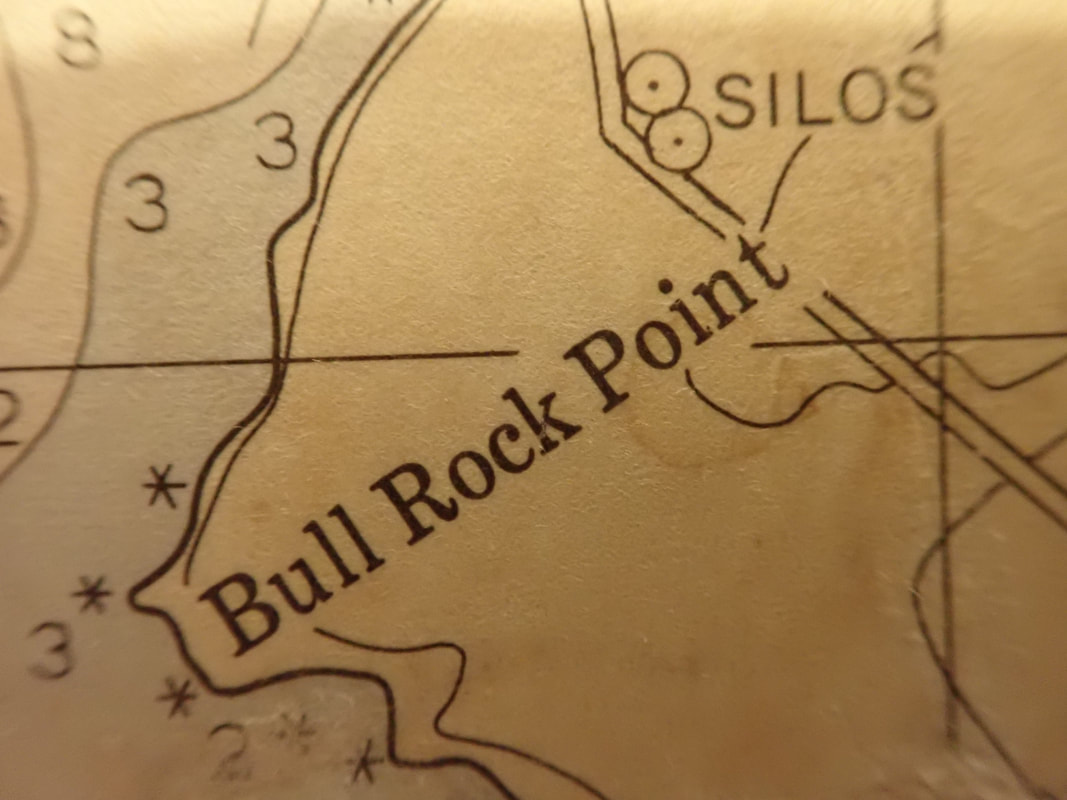
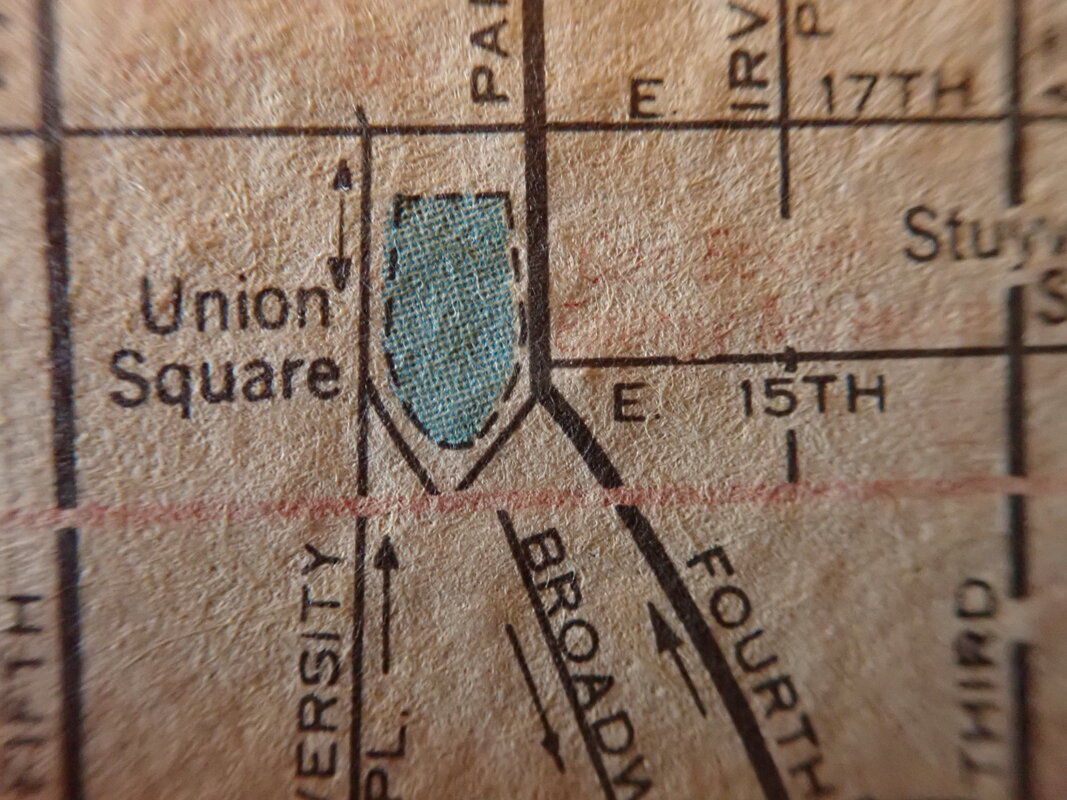
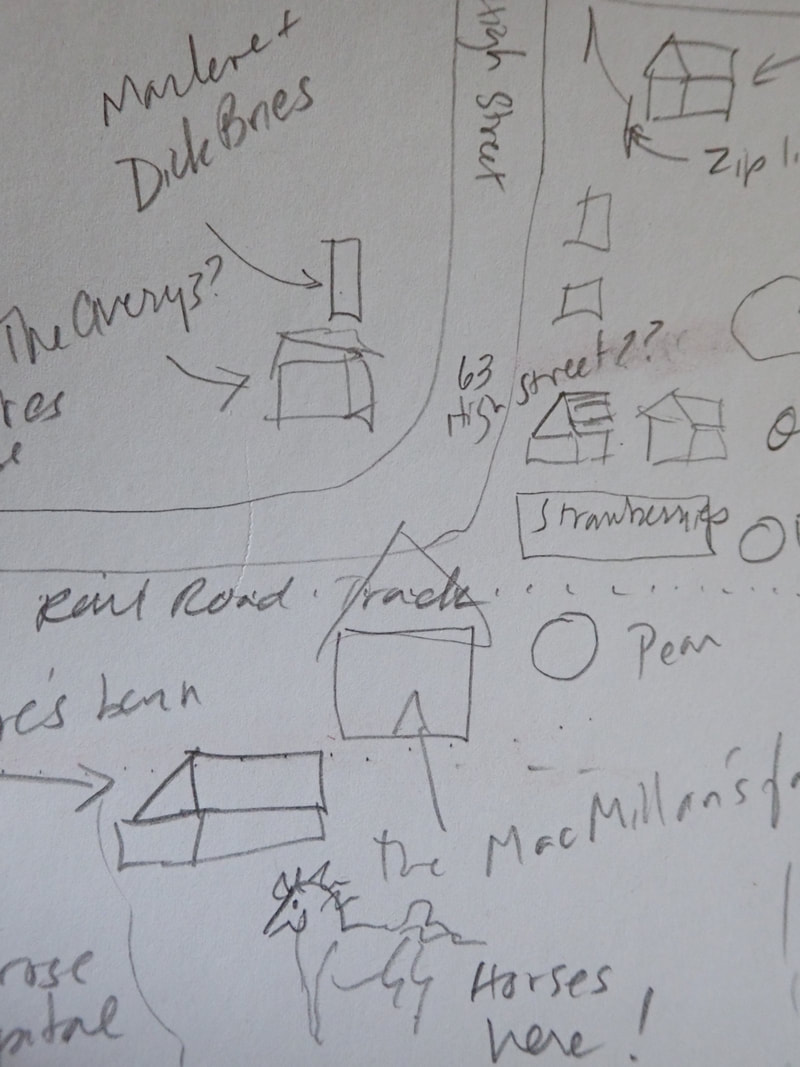
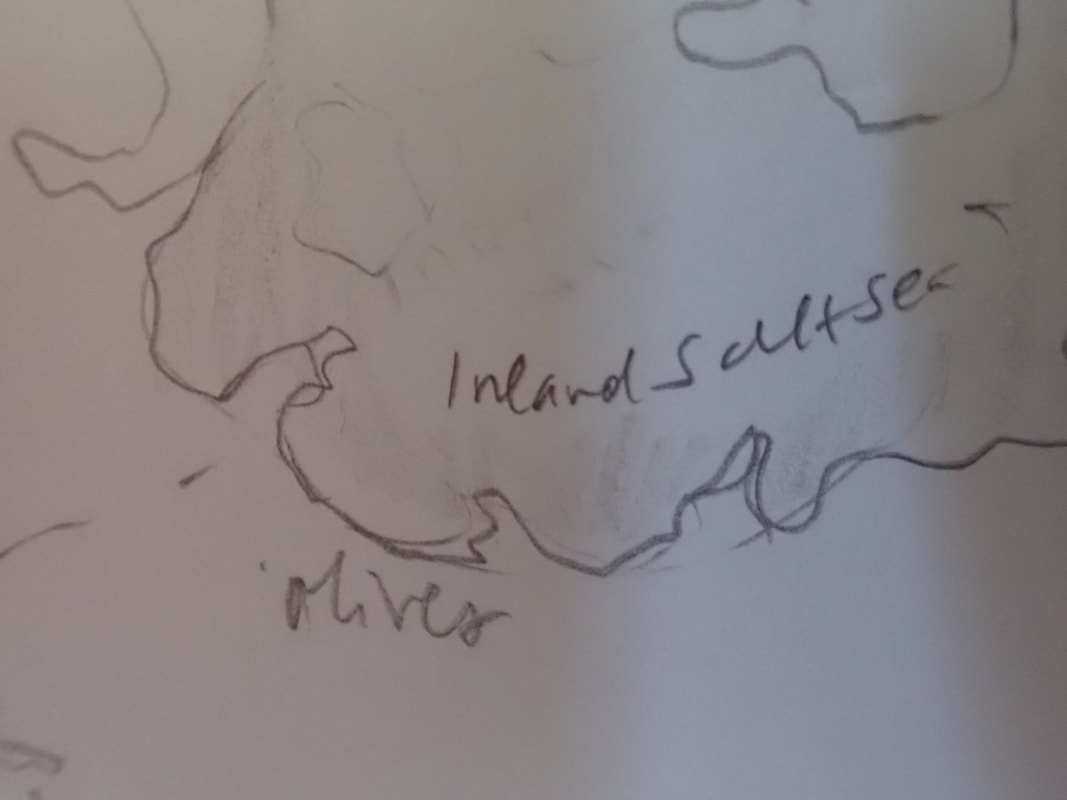
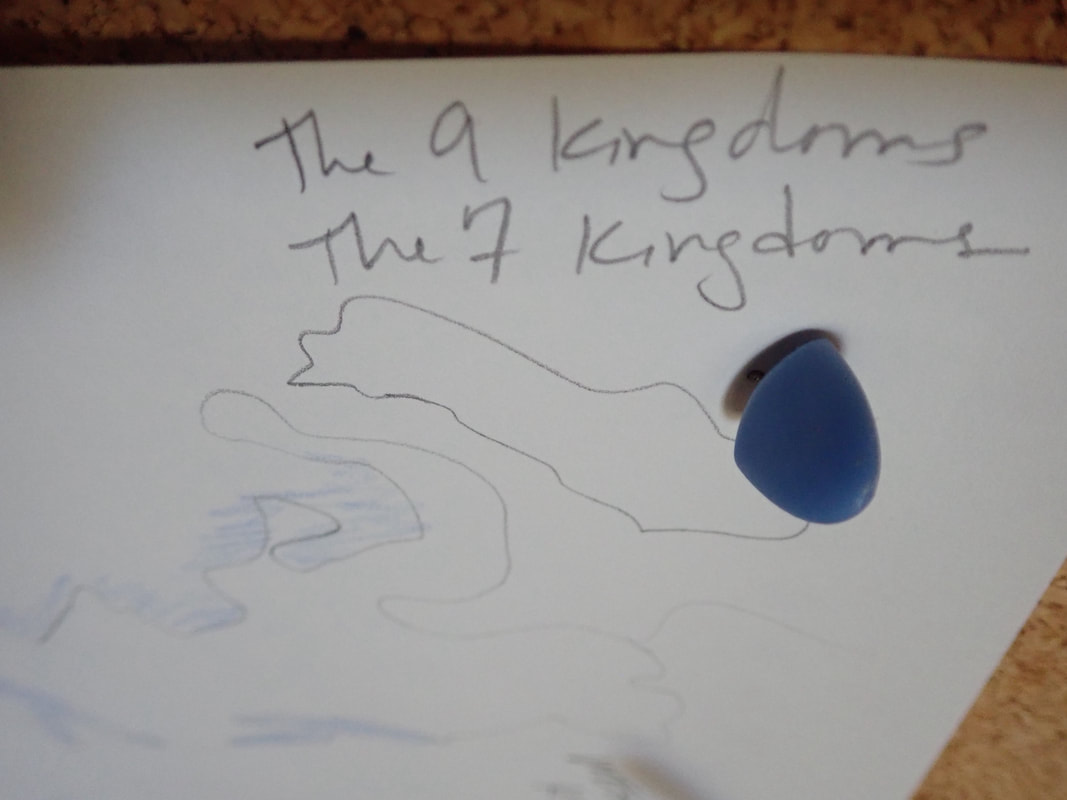
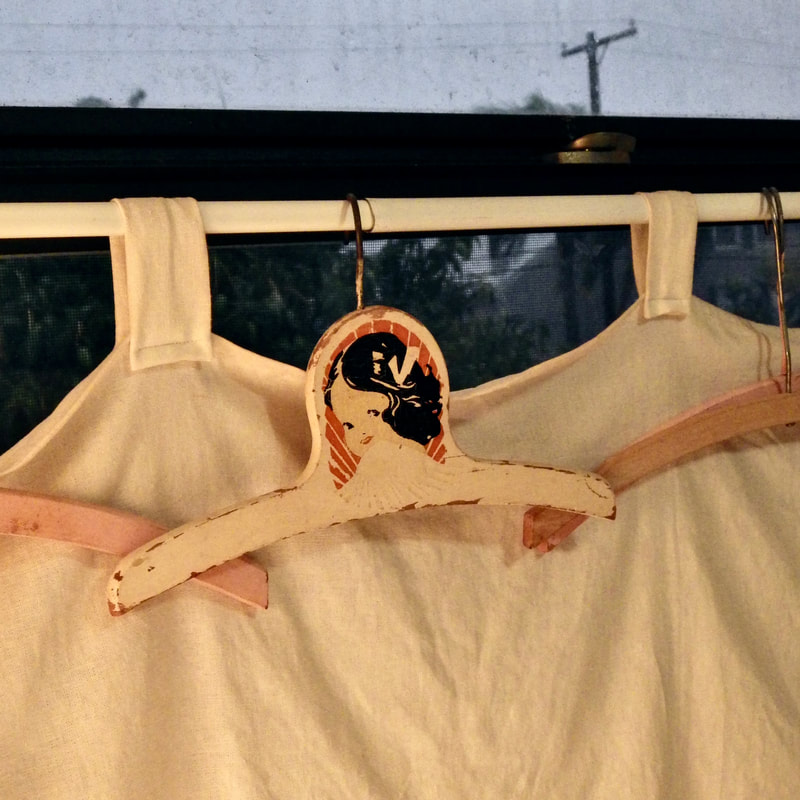
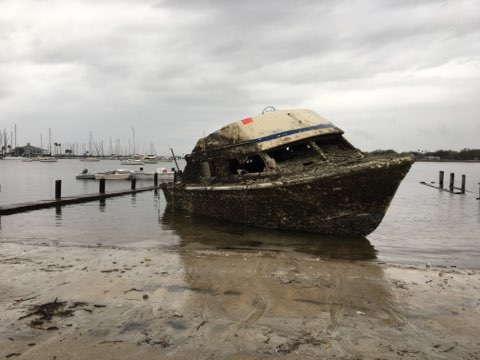
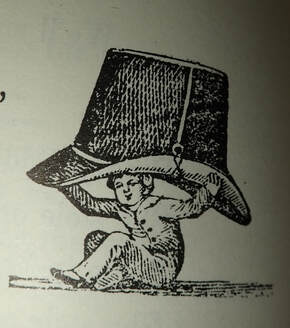
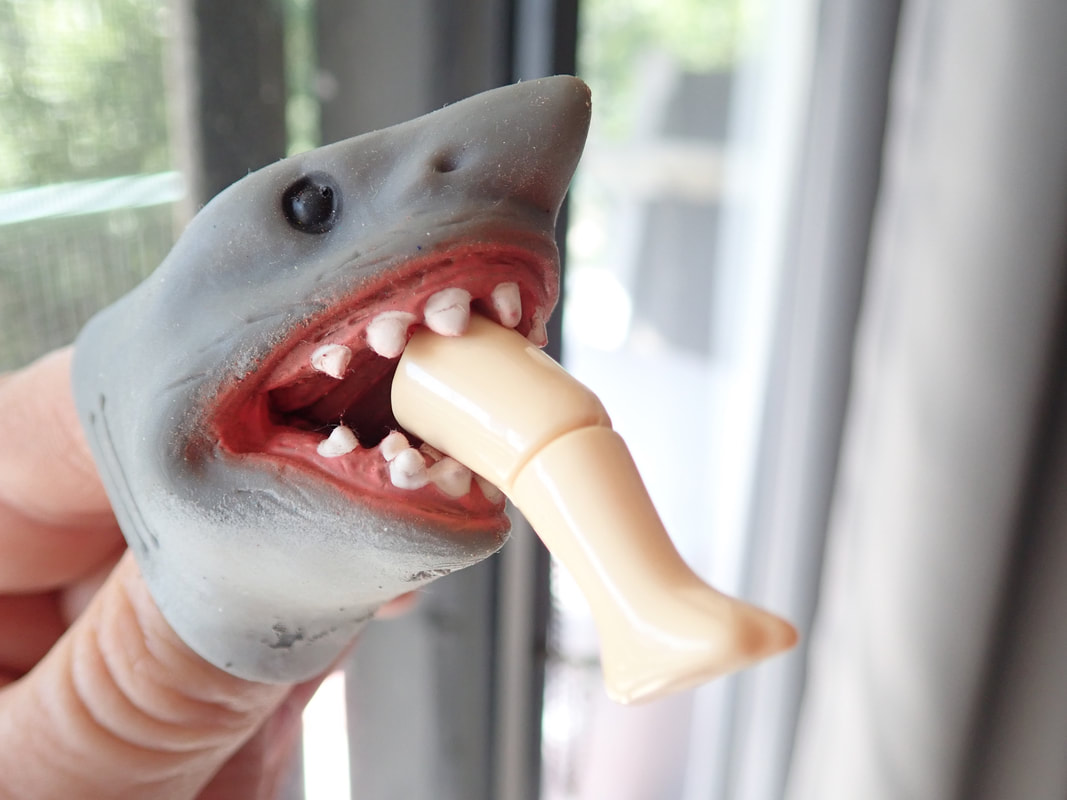
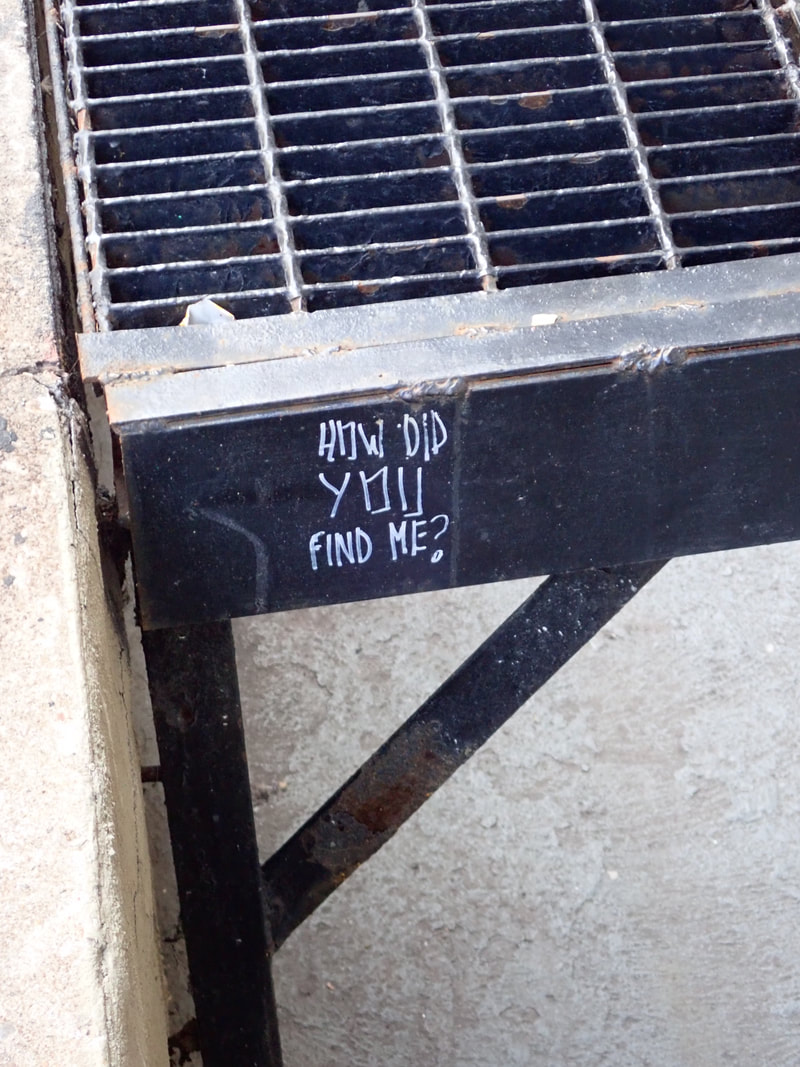
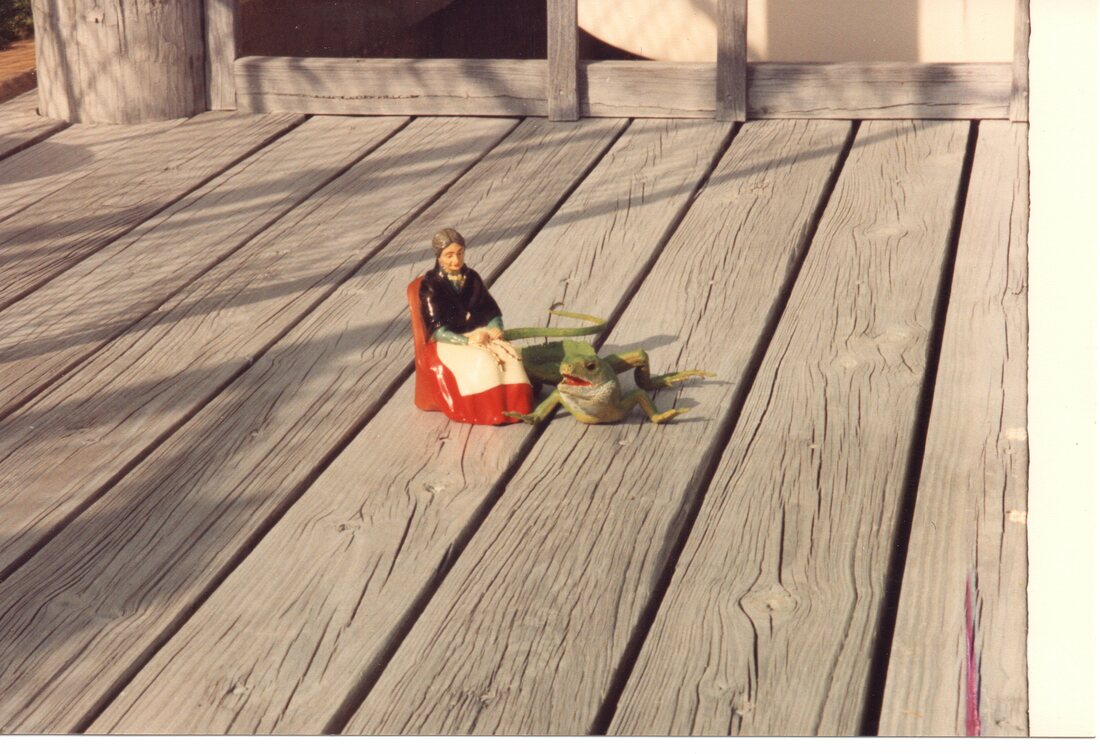
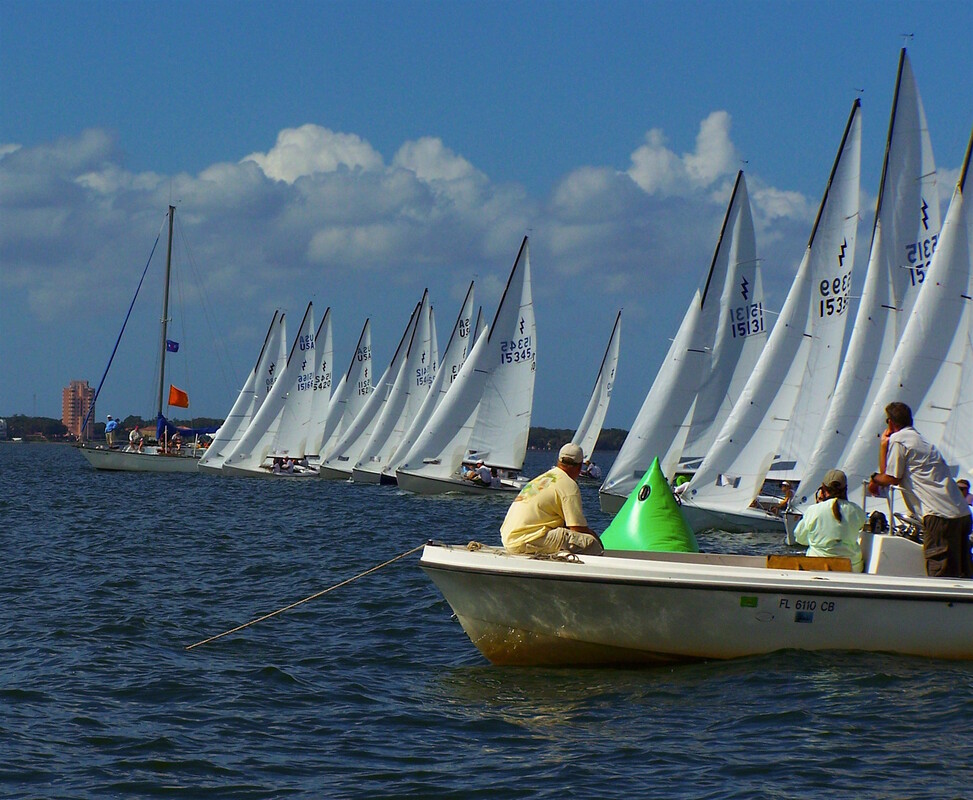
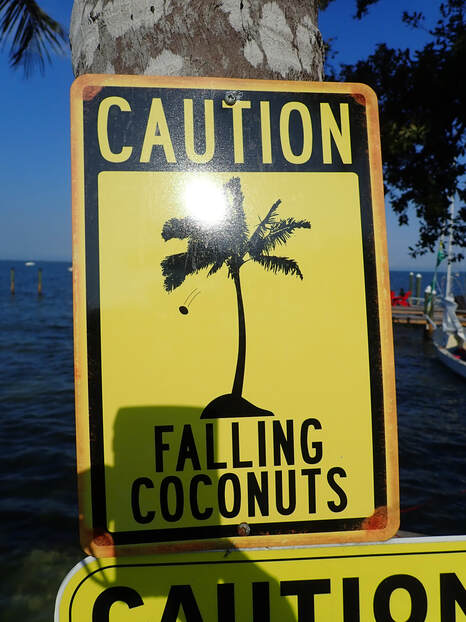
 RSS Feed
RSS Feed
